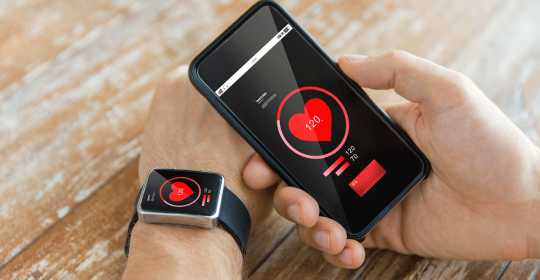
How Your Heart Rate Can Predict Your Future Mental Health And Violent Behavior
Scientists found out that high or low resting heart rates may predict future mental illness.
In a previously released study the researchers at the Karolinska Institutet, Stockholm, Sweden, could show that men with a low heart rate (≤60 beats/min) had a 39% higher risk of being convicted of violent crimes compared to men with a higher heart rate (≥83 beats/min).
The authors concluded: “Among men, low resting heart rate in late adolescence was associated with an increased risk for violent criminality, nonviolent criminality, exposure to assault, and unintentional injury in adulthood.”
Now the Swedish researches released a new study including over 1 million men. They found out that:
Higher resting heart rate (≥82 beats/min) in late adolescence was associated with increased risk for
• OCD, obsessive-compulsive disorder (69% increased risk)
• Schizophrenia (21% increased risk)
• Anxiety (18% increased risk)
Lower resting heart rate (≤62 beats/min) in late adolescence was associated with an increased risk for
• Substance use disorders
• Violent criminality
The authors concluded: “Our results suggest that for men, differences in heart rate and blood pressure in late adolescence are associated with lifetime major psychiatric disorders, with higher levels associated with obsessive-compulsive disorder, schizophrenia, and anxiety disorders and lower levels associated with substance use disorders and violent behavior. Differences in autonomic nervous system functioning may predate or represent an early marker of psychiatric disorders.”
Reference: Jama, Jama
Anxiety, Phobia, Panic Attacks, Fear – German Neuroscience
Anxiety, Phobia, Panic Attacks and Agoraphobia have one thing in common, Fear. Fear is an entirely normal feeling. But if fear has no valid cause…

